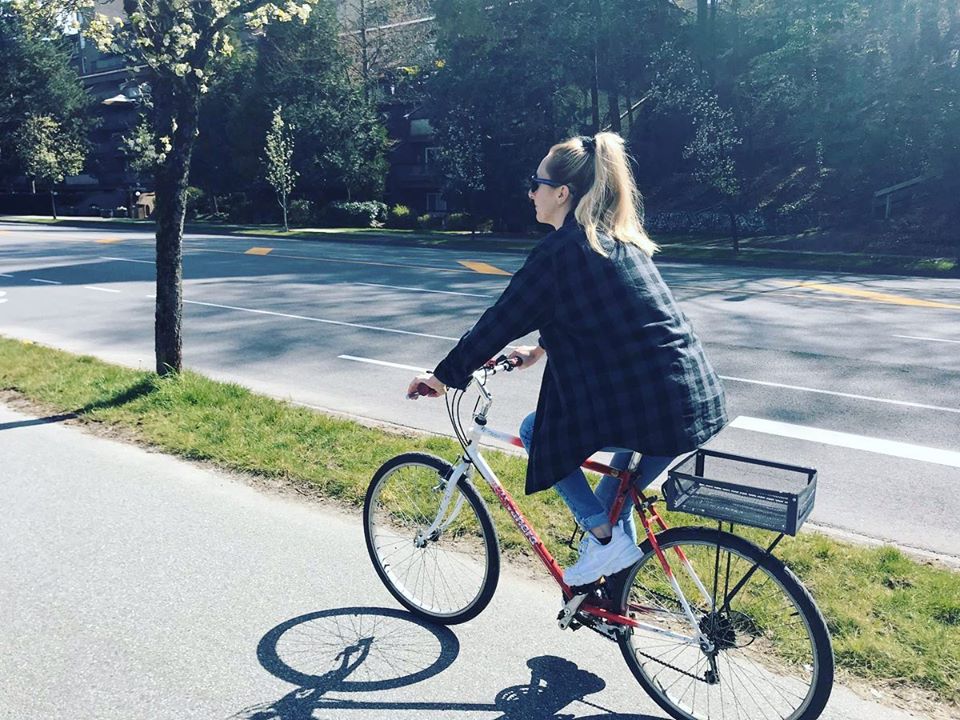In honor of UN World Environment Day (tomorrow, June 5, 2020), here are some sustainable living tips you can implement to help the environment. A few years ago, I would have never made a connection between my lifestyle habits and the environment. It’s only in the last couple of years that I have had a huge realization.
When I began looking into sustainable living, I felt overwhelmed. It was then that I realized I had been a colossal consumer for almost my whole life. I asked myself how I was going to be able to live more sustainably and where I would even start. I have been practicing sustainable living for a little while now, and I have managed to break my actions down into the following 5 sections: transport, diet, minimalism, waste management and usage and community. This sounds overwhelming right? I can assure you it’s not. I have made one small change at a time and I am really proud of my progress. Of course, there is more I could be doing, but making a start and putting in the effort is really what counts.
1. Transport
I have recently moved to Vancouver from the U.K., where I owned a car and drove everywhere. I hardly ever used public transport, I didn’t own a bike and due to living in the countryside, walking to the city wasn’t an option. Owning a car meant convenience. I didn’t have to wait for a bus, I didn’t have to lock a bike away and I didn’t have to walk in the rain, it was great.
I then learned that my car was 1 in over 32.5 million cars on the road in the U.K. The issue with so many of us using cars is of course, air pollution and climate change. According to EPUK, transport has been found to be one of the biggest sources of pollution in the U.K., accounting for around 22% of total carbon dioxide emissions.
I now have chosen not to own a car and I instead run, walk, cycle or use public transport wherever I go. I have even been learning how to skateboard to open up my transport options even more. Owning a bike, skateboard or rollerblades is also definitely cheaper than owning a car and of course, it’s all exercise!

2. Diet
For over 20 years of my life, my diet has included meat, dairy, and eggs. However, I have now been vegan for a little over a year. My transition to becoming vegan was very gradual, trying pescatarian and vegetarian diets first. One of the main reasons I wanted to take on a vegan diet was the environment.
A 2019 review by the Faculty of Science at the University of Copenhagen explored which diet has the least environmental impact on our planet. The review concluded consistent and clear differences between omnivorous and vegan/vegetarian diets. A vegan diet was found to have the lowest CO2 production per calorie consumed. The study also shows that the more animal protein is consumed, the more water is used. Therefore, a plant-based diet offers the greatest potential to reduce global water consumption. Overall, the review concluded that a 100% plant-based diet had the least environmental impact.
Even if you’re reluctant to take on a vegan diet, you could try to cut down eating animal products by trying a vegetarian diet or even just eating veggie for a few nights of the week.

3. Minimalism
I think it’s safe to say that we live in a world where we are targets of marketing campaigns and ads urging us to consume, consume, consume. Whether that means buying the latest iPhone, only wearing an outfit once or purchasing items we really didn’t need in the first place, over-consumption is now most likely a part of our daily lives.
I was first introduced to minimalism when I watched a documentary on Netflix. At first, the idea of breaking away from the norm and everything I knew seemed far from achievable. However, over the years, adopting a more minimal lifestyle has not only helped me financially but also in terms of my mental health and of course, my carbon footprint.
WRAP estimates that in the U.K. £140 million worth of clothing ends up in landfills each year. The retail industry uses tons of water and emits carbon, contributing to greenhouse gas levels. Therefore, avoiding purchasing new clothing and lowering the demand for it will have positive effects on the environment.
Minimalism doesn’t necessarily mean getting rid of everything you own and living with just the basics to survive. You can adopt many aspects of minimalism resulting in owning things you love and cherish, rather than a mountain of things you forgot you even owned.
4. Waste Management & Usage
Disposing of unwanted items ethically and being responsible for your waste management can have a huge impact on the environment. According to Sciencing, about two-thirds of landfill waste contains biodegradable organic matter which releases methane gas. Methane is another gas, alongside carbon dioxide, which has been linked to global warming.
I try to avoid sending things to landfill sites as much as possible by reusing items, recycling them or giving them away. Whether I’m using tins to plant flowers, joining zero-waste Facebook groups or dropping things off at a goodwill store, I try to always get creative with what I can no longer find a use for.

When it comes to usage, perhaps your mind wanders to how much water your household uses or the number of toiletries you go through each month. It’s definitely great to always bear this in mind and to minimize where you can. However, I recently cast my net even further, thinking about my utility bill providers and their environmental impact. I managed to find an electricity provider that provides its members with energy from 100% renewable sources. Supporting businesses and organizations that generate electricity from clean, renewable sources is a great way to reduce their carbon footprint as well as your own.
5. Community
Getting involved in your local community and connecting with others to combat climate change will only benefit your journey to living more sustainably. Tackling lifestyle changes on your own can be difficult to navigate and so why not reach out to gather support and advice from others? Who knows, you may even inspire someone else. Since arriving in Vancouver, I have joined many online groups where I have discovered tips about best places to source items, how I can make my hobbies more eco-friendly and much more!
I still have a long way to go on my sustainable journey but I am really enjoying the process. Joining movements, engaging in conversation and learning about our planet never gets tiresome.
Also by Anna: These 6 Documentaries Convinced Me To Go Vegan (Watch With Your Roommate or Partner!
Get more like this—Sign up for our daily inspirational newsletter for exclusive content!
__
Photo: Anna Ashbarry




